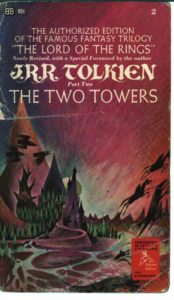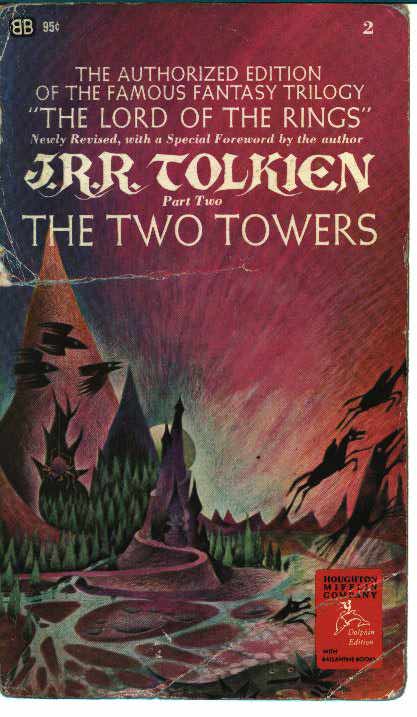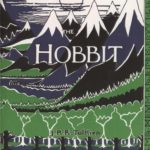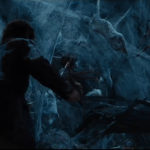Realism And Twenty-first Century Stories
 The subject of realism has cropped up in a number of posts of late. For the most part, all those who have written about the subject and many who commented are in favor of realism in our stories–whether in books or on TV or in movies. Who would rather replace the computer enhanced Aslan for an actor dressed in a lion costume? We want our Aslan to appear on the screen as real.
The subject of realism has cropped up in a number of posts of late. For the most part, all those who have written about the subject and many who commented are in favor of realism in our stories–whether in books or on TV or in movies. Who would rather replace the computer enhanced Aslan for an actor dressed in a lion costume? We want our Aslan to appear on the screen as real.
The desire and push for realism in our stories has given impetus to those who believe Christian fiction should include sex, profanity, and vulgarity. After all, those are real. What some of us point out, however, is that spiritual reality is often neglected by those who clamor for reality in fiction.
I think there’s something else not particularly real in twenty-first century stories, no matter how real the blue giants of Avatar might appear or how real the goblins of The Hobbit: An Unexpected Journey seem. We could chalk this up to “that’s just movies” if it weren’t for the fact that screen writing is beginning to dominate the way we write novels.
I’m not quite sure how to characterize this unrealistic phenomenon. Perhaps an illustration will serve to explain it.
 Saturday I watched the last part of Peter Jackson’s The Two Towers which was airing on TV. This was the first time I’d seen any of the Lord of the Rings movies since I’d re-read the books, which as it happened, I’d done again just this past December. Hence, the story details were fresher in my mind, and consequently the disparities between the book and the movie jumped out at me. The main thing I noticed was conflict in the movie where none existed in the book.
Saturday I watched the last part of Peter Jackson’s The Two Towers which was airing on TV. This was the first time I’d seen any of the Lord of the Rings movies since I’d re-read the books, which as it happened, I’d done again just this past December. Hence, the story details were fresher in my mind, and consequently the disparities between the book and the movie jumped out at me. The main thing I noticed was conflict in the movie where none existed in the book.
For example, in Tolkien’s original once Gandalf had freed Theodin, the king of Rohan, from the influence of Wormtongue, he quickly became his adviser. Théoden did what Gandalf told him to do: trusted Éomer as his new right hand, sent the women and children away to a place of protection (not Helms Deep), prepared his army to march on Isengard, sent out word to gather troops to support Gondor against Mordor. In the film version, however, Théoden fought Gandalf at every turn. He was nearly as depressed and suicidal as Denethor the Gondor steward.
There was also enhanced conflict between Arwen and her father Elrond about her staying in Middle Earth for Aragon. She finally decided to leave–an incident that did not happen in the book.
 Another “it did not happen in the book” example also involved Aragon. On the way to Helms Deep (rather than to Isengard, as the book had it), the people of Rohan were attacked by Uruk-hai and Wargs. In the battle, Aragon was dragged over a cliff and fell to the river. His companions presumed him to be dead.
Another “it did not happen in the book” example also involved Aragon. On the way to Helms Deep (rather than to Isengard, as the book had it), the people of Rohan were attacked by Uruk-hai and Wargs. In the battle, Aragon was dragged over a cliff and fell to the river. His companions presumed him to be dead.
Then, too, Treebeard and the Ents decided they would not help in the war against Saruman. Merry and Pipin tried to talk him into it, but he refused, only promising to take them out of the forest at whatever point they wished. On the way, they came to a place where Saruman’s forces had destroyed the trees, and the Ents then arose and fought. The motivation in the book is the same, but the conflict between the hobbits and the Ents never existed.
In the segments concerning Frodo, there were more of these manufactured conflicts. Frodo and Sam argued about the effect the ring had and about their disparate treatment of Gollum. Then too, Faramir insisted on taking Sam, Frodo, and Gollum to Gondor with the intent to use the ring (which they spoke of openly in front of all Faramir’s men) in the battle against Mordor. When they reached Osgiliath, they were attacked by one of the Nazgul. Under the influence of its presence, Frodo acted as if he’d been possessed and nearly put on the ring. Faithful Sam tackled him to stop him and they wrestled, with Frodo pulling his sword on Sam. None of this happened in the book.
As I thought about these differences, it seems to me that the movie was faithfully following the dictates of writing instructors who tell writers to make life hard for their characters and when it’s as bad as it can get, make it worse.
But is that reality?
Do friends always turn against one another? Does the hero always fall to his apparent death? Do the once mighty always succumb to discouragement and despair? Does doubt and fear always push loved ones to leave?
The answer is, no.
Tolkien got it right in his version of The Lord of the Rings–he told a realistic story. Borimir succumbed to the power of the ring, but Faramir did not. Denethor became suicidal, but Théoden did not. Gandalf fell to his apparent death, but Aragon did not.
In showing the strength of Faramir, the healing of Théoden, the prowess of Aragon, Tolkien enhanced Borimir’s failure, Denethor’s selfish choice, and Gandalf’s sacrifice. In other words, by not taking every character to the brink before leading them back, he magnified each case in which a character was taken to the brink.
If all characters are victims of disaster, I suggest readers or viewers stop caring and start looking for the “out.” Will the character die and come back? Have a narrow escape? Have a death that only looks like death? In truth, all the arguing and betrayal and refusal becomes–predictable and boring and unrealistic. Soon the characters seem more like caricatures because none acts with nobility or courage or hope. All display their flawed selves with so little inner struggle. And this, we’ve come to believe, is realistic.
Perhaps this twenty-first century version of realism is another way in which we are not addressing spiritual issues realistically. We are, after all, made in God’s image. We have within us a moral sense of right and wrong. We also have a sin nature. In essence, we are divided at our core.
We experience the truth of Romans 7 day in and day out, doing the thing we hate and neglecting the thing we know we should do. We struggle in the inner person. But Romans 8 follows, too. We revel in the freedom from the law of sin and death, we experience God’s sovereign purpose to work all things for our good, we enjoy His nothing-can-separate-us love. In short, reality is a mixed bag along the journey. It’s not all bad until the miraculously impossible reversal.
In story writing, I believe in conflict, I really do, though I believe in tension more. I wonder if twenty-first century authors aren’t needlessly creating artificial, “big bang” conflict when inner-struggle tension, more true to life, actually would make for a better story. Tolkien’s work convinces me that more external conflict isn’t particularly realistic nor is it always the best.







































Hmm..I don’t think I’ve noticed that before, but it’s a fair point.
What twenty-first century books get it right, then? LOTR is half a century old. To our shame, people don’t write that way any more. But how, then, shall we write?
Kessie, I don’t know as I’ve thought about this long enough to come up with contemporary books that get it right. From what I’ve heard, there are a number of YA titles that do the movie thing and get it wrong. They are instant successes, real page-turners, but they aren’t realistic. They are missing a big part of what is True.
So I guess we Christian writers need to consider how we should write. Can we incorporate the writing principles of the 21st century while still creating stories that are spiritually realistic? Or should we break from the advice of writing instructors and create a story that is less caricature and more real, a la Tolkien? Can the latter sell in today’s market?
Becky
I happened to like the LOTR adapts. In the Making Of, Fran explained why they changed Faramir’s reaction to the Ring. It’d been a serious temptation to every other character in the story thus far–then Faramir comes along and says he would not take this thing, even if he found it beside the road. She said it completely destroyed the dramatic tension of the Ring up to that point, if somebody resisted it so easily. So they changed it. And Faramir eventually lets the Ring go, something Boromir couldn’t do.
LOTR, as it stands, is unfilmable. They had to make changes, and although I don’t really buy some of them (like Frodo suddenly trusting Gollum enough to follow him into Shelob’s lair in movie 3), it does make for the Scene of Awesome when Sam shows up with Sting.
I’m not sure how this relates to Truth. Good verses evil? Check. People making good and bad choices and dealing with the consequences? Check. Seems pretty truthful to me.
Fran’s comments about Faramir actually serve to illustrate my point. In the present movie making process, every person is treated like every other person. What makes Boromir so tragic is that his brother did resist what he could not and what he regretted not resisting as soon as Frodo vanished.
In other words, there are no real heroes. Everyone has to be in equal danger at all times of the worst happening, beyond their control or their strength or their courage or their determination to do right. When I read the book, I never thought it was easy for Faramir to refuse to take the ring, just as it was not easy for Galadriel to refuse or for Gandalf to refuse.
I agree that Lord of the Rings, told in the omniscient voice as it was, could not be filmed as such. I had the sense that some of the scenes of conflict were put in to convey some of the inner struggle that Tolkien was able to convey through narrative. I don’t object to that. What I’m questioning is the instruction from a number of sources to write novels in this same way.
Novels are not movies. Each media has its own strengths. By imitating movies, I’m thinking novels may lose more than they gain, and I think that loss may be tied into spiritual realism.
The Truth aspect is the idea that heroes do exist–loyalty is possible, a person can love sacrificially. Sam and Frodo arguing with each other undermines the friendship and sacrifice, I think. (Granted, I’d like to qualify that by saying, because of Christ, loyalty is possible … 😆 But Tolkien didn’t make such a qualification. However, as far as it goes, I think it offers hope–an answer to the nihilistic tendencies of society, and is therefore truthful.)
Becky
Yes. One example is The Hunger Games series. It’s basically a screenplay in novel form; even the first-person present-tense evokes a screenplay. All the ingredients are there: the musical cue, the Icon with Family Significance (i.e. the mockingjay pendant), and enough description for the set-dressers.
I’m not faulting The Hunger Games series, only saying they don’t all need to be that way. Why skip the strengths of a book only to instruct screenwriters?
For a while I’ve had a little personal slogan, not creative, but punchy:
Now I want to adapt it (ha ha!) to focus on our readers-first audience at SF:
Aragorn didn’t seem to struggle. And, as he said to doubting Sam, “If I were after the Ring, I could have it – now.” I think the Ring held especial appeal for those who were proud, wanted power, or were afraid.
Others would find it easier to resist – especially those wise enough to recognize that the Ring could do worse things to them than Sauron, and those humble enough to know they were too weak to safely wield the Ring. No temptation is equal to everybody. Some people get snared, others struggle, others walk on by.
Good points. I’ve always heard that the goal of fiction writing per realism isn’t to make it realistic (that would be boring), but to give the appearance of realism.
I like your point about conflict and tension. 20th examples? Star Wars, at least the originals, you have OWK and Yoda. Many of these types of “hero journey” books have a mentor, who usually dies at some point, that seems to “have it all together.” That contrasts against the failings and growth of the protag. The success of Eragon probably points to that type of story as still able to make it in today’s literary world.
Uniquely, even though he goes through struggles, my protag in Mind Game and Hero Game is a teen with some old-fashioned morals, and if the reviews are any indication, still well liked. Still far from a best seller, but who knows? 😉
Thanks for your input, Rick. Yea for your hero teen protag! I’d love to see Mind Game and Hero Game become best sellers! 😀
Becky
Hmm… forget discussing controversial content like vulgarity. It seems books can be spiritually “gritty,” with or without any reference or use of any particularly kind of content.
When I read this, I answered “yes” in my head. Then I realized that you mean literally. Not everyone literally dies by falling. So, I agree that it was cliché and overly dramatic for the movie-makers to have Aragorn nearly get killed by taking a literal “fall.”
I think this may come to down to melodrama. We don’t need excessive melodrama about secondary issues. Too much melodrama takes away from the characterization and therefore the realism.
Melodrama! Yes, that’s the word I was looking for. Our stories are all becoming tales about protagonists tied to the railroad tracks. 😉 Thanks, Bainespal.
Becky
The best stories have external conflict that mirrors internal conflict — or makes the internal conflict worse. For instance, in The Lord of the Rings (books and films), the most gripping and poignant moments come when external events drives inner turmoil. Troops move in Mordor — Frodo is driven to despair. Despite mockery from Sauron’s emissary, Aragorn charges into battle, a self-sacrifice to give Frodo more time. Etc.
People mock a newer example, the superhero film Spider-Man 3 (2007), but it tried to follow this same motif, with its poster slogan of The Greatest Battle Lies Within. Where it failed was only in over-complicating this wonderful central theme.